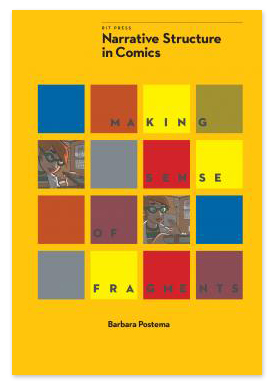HomeNews & Events2013May SSHRC Postdoctoral Fellow Dr....
 Our new SSHRC Postdoctoral Fellow Dr. Barbara Postema has her first scholarly book Narrative Structure in Comic, coming out with the Rochester Institute of Technology Press in June.
Our new SSHRC Postdoctoral Fellow Dr. Barbara Postema has her first scholarly book Narrative Structure in Comic, coming out with the Rochester Institute of Technology Press in June.
HomeNews & Events2013May SSHRC Postdoctoral Fellow Dr....
 Our new SSHRC Postdoctoral Fellow Dr. Barbara Postema has her first scholarly book Narrative Structure in Comic, coming out with the Rochester Institute of Technology Press in June.
Our new SSHRC Postdoctoral Fellow Dr. Barbara Postema has her first scholarly book Narrative Structure in Comic, coming out with the Rochester Institute of Technology Press in June.

Dr. Debra Moddelmog serves on the MLC Executive Committee , supporting its international research partnerships and strategic initiates.

Tor Rogers joins the MLCRC, contributing to the Telling COVID-19 Stories databank and supporting research and storytelling.

Irene Gammel, Director, is pleased to present the top accomplishments of the MLC Research Centre in 2025.

Ella will be working as the MLC Research Coordinator and shares her knowledge of digital anthropology and online identity formation.